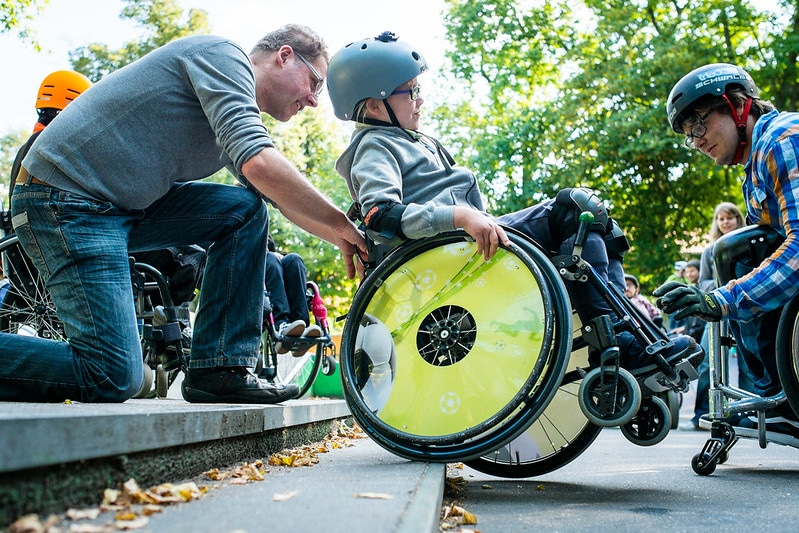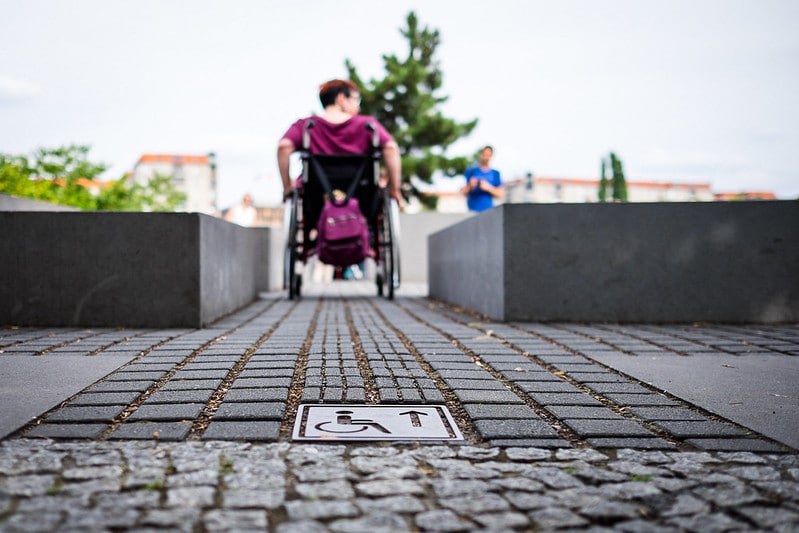Germany (Berlin)
Just one step can be an insurmountable obstacle for wheelchair users. And this is where Wheelmap comes into play: the crowdsourcing platform provides information on the accessibility of one million places around the world.
There are around 75 million people who need a wheelchair on a daily basis. and as the population gets older, this number will continue to grow. This represents 1% of the world’s population.
“A lot of people who don’t use a wheelchair don’t realise how many places which they are entering every day have steps or stairs. There are so many barriers in everyday life for people with disabilities to get around”, says Raúl Krauthausen, founder of Wheelmap (pictured below).

Raúl’s idea developed from a real, everyday situation: a friend complained about having to meet him in the same café every time they wanted to get together, because neither knew of another café in which they could meet without being hindered by a step at the entrance.
This is a classic example of how physical barriers restrict the lives of wheelchair users around the world. Raúl thought that a map which showed the wheelchair accessibility of places in the area would be helpful.
That was the beginning of wheelmap.org and its apps, where users can provide information on how accessible a location is. The launch of the map took place in the summer of 2010.
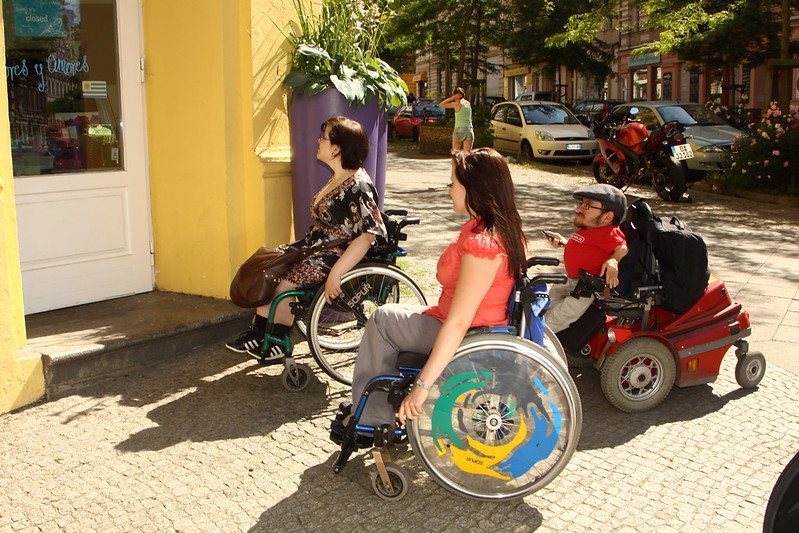
Wheelmap is based on OpenStreetMap, an open, editable map of the world. Everyone can search for places and information on wheelchair accessibility. Users are also able to add and rate new places using a simple traffic light system: green means that a place is fully wheelchair accessible, a yellow place is partially accessible and a red marker indicates inaccessible places. The map benefits from the fact that smartphones are used so widely.
“Wheelmap will help more and more people to face fewer barriers in the future. That is inclusion through and through.” – Raúl Krauthausen
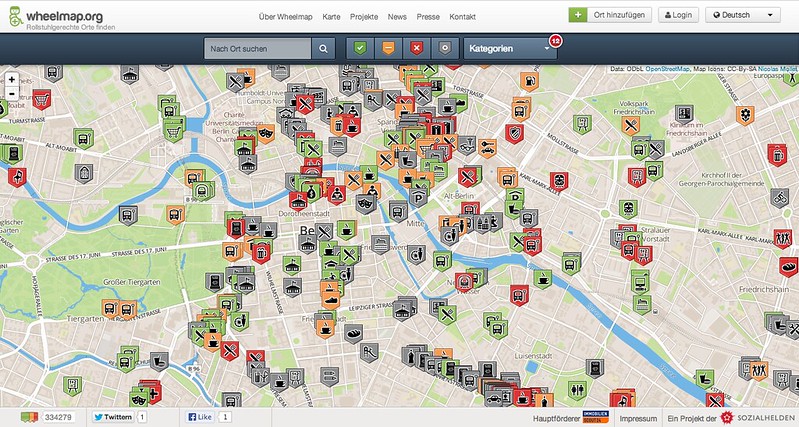
First, you need to check: is it possible to get into the place as a wheelchair user? Are there steps or a ramp at the entrance? Then you need to check if every room of a location is accessible. If that is the case, the place is considered fully wheelchair-accessible. You can also enter your own comments about a place, including details such as: “Access is possible using the terrace.”
“It was very important for us that the app be easy to use both for finding places and for entering new information, so that even people who are not very technically experienced can participate as well,” adds Raúl.
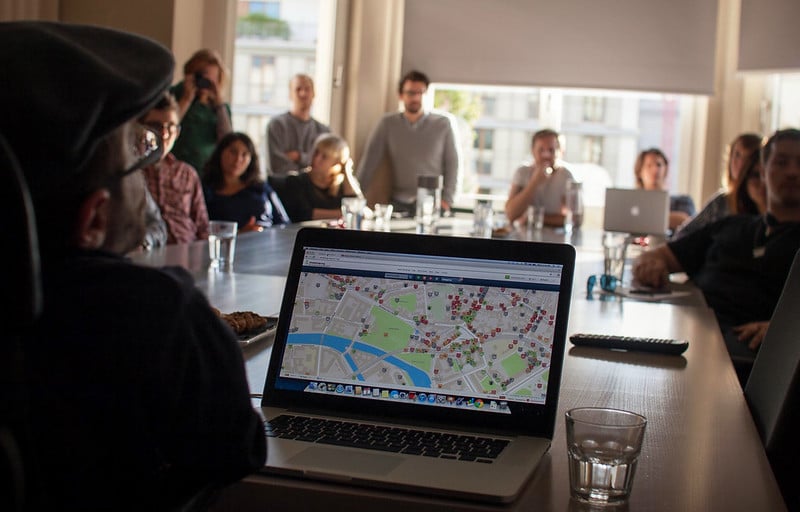
Every day, approximately 300 new places are marked on the map and thousands of users consult the map to plan their day. This map contributes to an active and diversified lifestyle for wheelchair users, but people with wheeled walkers or buggies benefit from this tool as well. Furthermore, the aim of Wheelmap is to make owners of wheelchair-inaccessible public places aware of the problem. They should be encouraged to reflect on and improve the accessibility of their premises.
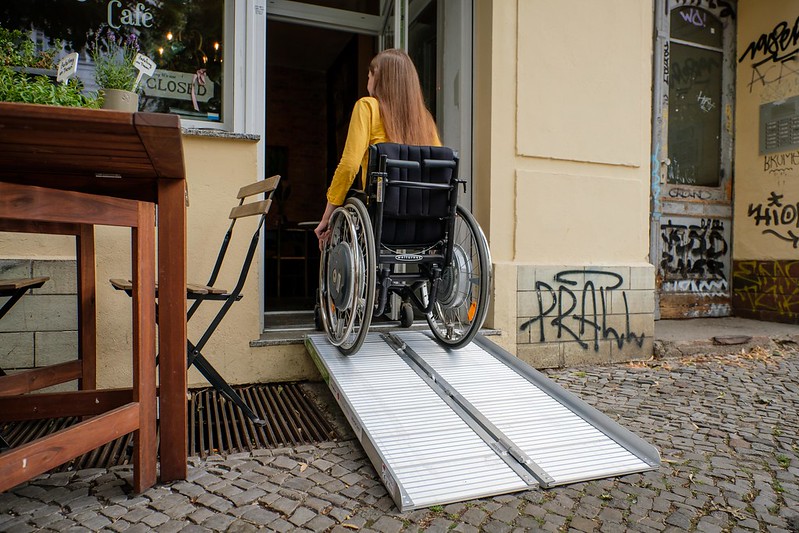
Wheelmap uses the technological infrastructure of accessibility.cloud, an open data exchange service that the Wheelmap team has developed, to bring different data sources on accessibility together in one common data format and API. Through an accessibility.cloud, Wheelmap can display the real-time data on elevators and escalators in some cities in Germany.
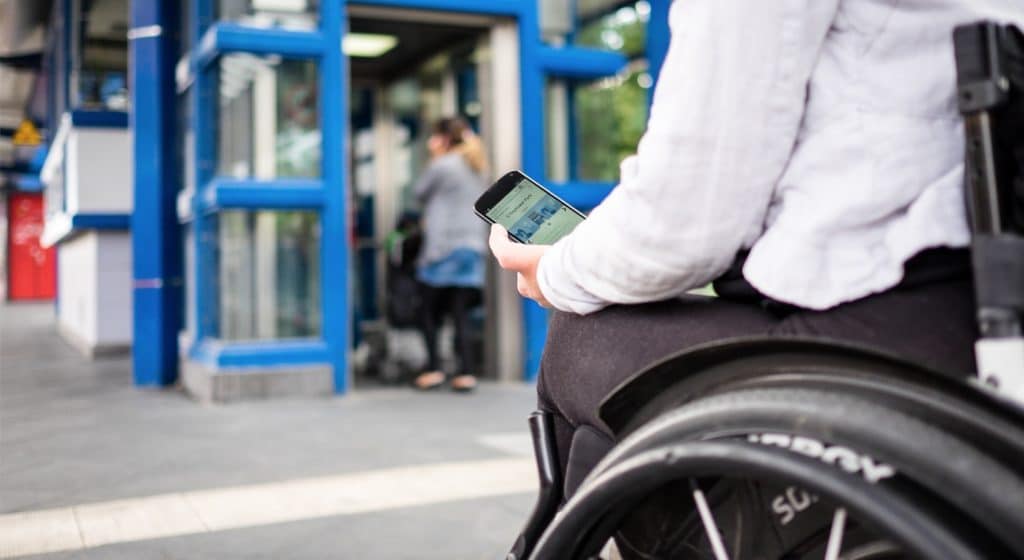
Raúl is the author of Dachdecker wollte ich eh nicht werden: Das Leben aus der Rollstuhlperspektive, (I didn’t want to become a roofer anyway: Life from a Wheelchair Perspective). Thanks to Wheelmap, “as a resident of Berlin I can find out where I can eat a Bavarian veal sausage when I am visiting Munich without having to turn back at the front door of a restaurant,” he explains.
Millions of people with mobility impairments now have a guide for wheelchair accessible places at their fingertips in 32 languages, from Icelandic to Korean.
AtlasAction: Get involved by adding information about the accessibility of places in your neighbourhood or city. And if you are a wheelchair user, discover all the possibilities that wheelmap.org offers you. They are currently looking for volunteer translators. Interested? Contact them here.
Project leader
Raúl Krauthausen, founder
Support the Atlas
We want the Atlas of the Future media platform and our event to be available to everybody, everywhere for free – always. Fancy helping us spread stories of hope and optimism to create a better tomorrow? For those able, we'd be grateful for any donation.
- Please support the Atlas here
- Thank you!
